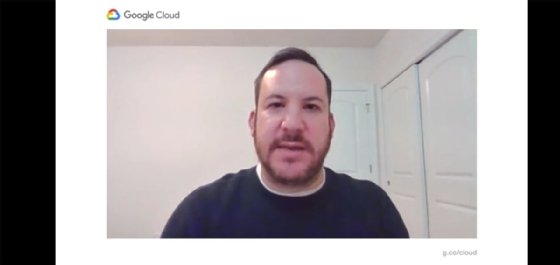McDonald’s was late to the industry with a cellular application. In spite of getting a person of the most significant rapidly-food brands in the planet, McDonald’s failed to launch an application until eventually all around a few a long time in the past, extended soon after the arrival of smartphones.
The application, which has because found hundreds of thousands of downloads, collects consumer facts to deliver buyers with customized deals and give McDonald’s a improved sense of who its buyers are.
Using analytics and AI in marketing and advertising
In a digital session throughout Google Cloud Subsequent 2020, personnel from the rapidly-food giant in-depth how the cellular application, alongside with analytics and AI in marketing and advertising, enabled McDonald’s to flip away from mass marketing and advertising.
“Even though mass marketing and advertising has been and continues to be a great car or truck in reaching the most buyers, what it seriously lacks is the ability to concentrate on buyers with content material that’s suitable to them,” claimed David Galinsky, director of world wide client facts tactic at McDonald’s.
Personalized marketing and advertising, meanwhile, allows McDonald’s to have an understanding of its buyers improved.
“With the suitable facts, we can identify the suitable buyers,” he claimed.
The cellular application gives the cafe chain with a ton of individual client facts, such as the time a client usually will come into a cafe, the particular cafe they are inclined to go to, the kinds of items they invest in, and how substantially they spend.
Enter into Google BigQuery, and then analyzed with AI and analytics resources on Google Cloud Platform, the facts allows McDonald’s to forecast its customers’ wants and demands.
Google Cloud Platform “is a system that generates perception from machine studying and automates the era of campaign audiences to a visualization, as well,” claimed Andre Engberts, senior know-how director at Publicis Sapient. McDonald’s chose consulting and know-how services companies Publicis Sapient and Capgemini a couple a long time in the past to assistance with its electronic transformation.
Engberts mentioned that almost all the know-how McDonald’s uses for marketing and advertising is native to the Google Cloud Platform.

Distinctive AI models
McDonald’s uses five various models to obtain insights into its client behavior.
A single is for RFM evaluation (recency, frequency, financial value), an SQL-centered statistical design that primarily segments buyers by their value. The design uses facts on how just lately and usually a client goes into a cafe, and how substantially they are inclined to spend.
That on your own makes about fifteen to twenty segments that are the basis for client campaign targeting, Engberts claimed.
A further SQL-centered statistical design, for product relevancy, uses facts about which items buyers bought and how generally they bought them, and then displays product relevancy for each client for various categories.
Likewise, McDonald’s also uses a product propensity design, which maps just about every product as a likelihood of invest in to just about every client.
“Even however you could not have bought a product, individuals like you have bought that product, so we know your propensity to acquire it,” Engberts claimed.
The business offers a client churn design as effectively, which predicts the likelihood a client will quit going to McDonald’s. If the design predicts a substantial-value client will churn, McDonald’s targets the client with a substantial-value supply to test to keep them.
A client life time value design aids McDonald’s forecast the total value a client is possible to provide to McDonald’s above their life time.
McDonald’s customized marketing and advertising initiatives have greater its gross sales and transaction counts, and employing Google Cloud Platform for automation has aided lessen the variety of methods the business demands internally, Engberts claimed.
“Currently being capable to more accurately forecast what a client is going to do is the single most productive software that we have had above the previous five a long time,” he claimed. “Currently being capable to push small business value, anticipating client demands, is vital.”
Google Cloud Subsequent 2020 took put practically this year due to COVID-19 fears. Google has produced prerecorded weekly classes each Tuesday because July 14. The very last session will be on Sept. 8.
